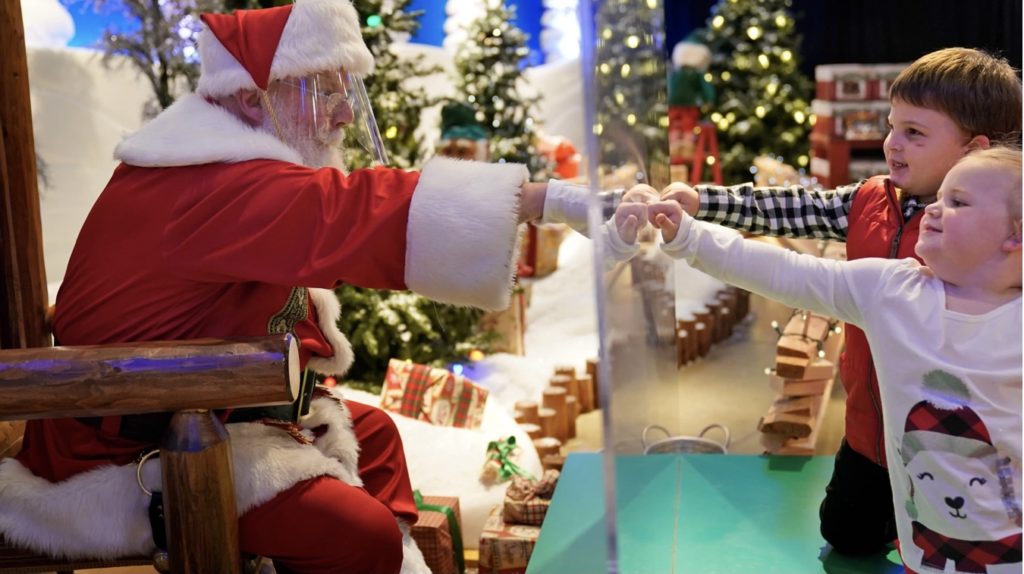Everyone gets a Santa moment. Actually, we get two, but most of us opt out of the second.
The first is pretty simple and usually comes at a younger age (I think I was 38). That epiphany, either discovered or disclosed, that there is no globular elf holed up at the North Pole who jacks a team of flying deer every year to reverse-burgle your home.
The second seems almost as straightforward. But adults are much more reluctant to give up the notion of their Santa: an otherworldly patriarch who sees you while you’re sleeping, knows when you’re awake, and knows if you’ve been bad or good, so watch your ass for good chrissakes.
Growing up in an atheistic home, I’m a carnival mirror of my father’s skepticism. So I can’t say I understand the appeal of omnipresence. But even from this secular perch, I guess the lure is to be expected. Christianity — like all Abrahamic religions — is an Iron Age tradition that served as a proto-science for centuries. Recalibrating that perspective will be a glacial thaw — if it happens at all.
But the nation clearly has drawn too hard on the Coca Cola Slurpee, because we are in the middle of an Arctic brain freeze that has numbed our need for things like proof or evidence. Our penchant for fact-free daydreaming has run amok in America’s most pressing issues: the pandemic and politics.
It’s been hard to tell the two apart lately. Roughly half of Americans are vaccinated, according to polls. That’s in leage with the percentage of people who believe the presidential election was rigged.
Of course, 60% of Americans also report having personally witnessed a ghost, according to a 2018 survey of Groupon users, of all things. So there’s that.
There’s a name for that kind of thinking. It’s called Unethical Epistemology.
Ethical Epistemology holds that it’s immoral to believe in something for which there is no evidence.
It sounds like a harsh worldview, and it does go counter to our instincts about religion, the supernatural, even gut instinct. And it underscores why so many people are hesitant to embrace science.
For the first 5,000 years of our existence, the world was full of living spirits. Gods and demons fought over our seas and crops. Animals held human interests. The stars kept us in mind.
We were not alone.
And along comes science, the ultimate buzzkill. You are on your own, science scolds, nixing gods like Zeus and Poseidon and fucking up our horoscope (though, to be fair, it did say you would face a challenge this month).
For some of us, that news is like the school’s-out bell the last day before summer. Or finding the keys to the liquor cabinet before Mom and Dad’s Carnival cruise. The place is yours! YOU set the party rules. YOU decide how loud the music plays. YOU set bedtimes, if you want them at all.
YOU are Santa.
But for a sizable chunk of the populace — perhaps the bulk of it — that’s unwelcome news and an unwanted job. Critics of Ethical Epistemology rightly point out that religious scaffolding has kept us primates largely in check for millennia. There’s that, too.
So where do we find a shared-upon reality? How do we fix a car if we can’t agree on whether it’s a Buick or a BMW?
Fortunately, if you’re an Ethical Epistemologist like me, there’s an easy test to determine if you’re with an unethical one. Simply work in an innocent question like “what about that COVID?” or “what about that election?” Any answer will lead to their belief. It won’t change any minds, but at least you’ll know the mind your dealing with.
There has got to be a brokered ground somewhere that resides other than in Tucker Carlson’s venomous spittle or Marjorie Taylor-Greene’s space laser-addled brain. They — and their parroting ilk — must be challenged on matters of basic veracity.
But at some point, all of us, regardless of political leanings, must question the beliefs that undergird our own convictions.
Because if the kids are left to decide the Santa moment, we’ll all be getting lumps of coal.

